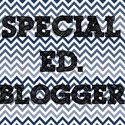Spelling
September 18, 2011
Spelling List 1
Spelling List 1 consists of missed sight words from last weeks pretest and will focus on closed syllable words and short vowel sounds. At the end of two weeks there will be a spelling test. The goal is to increase word attack, reading fluency, vocabulary, and comprehension skills at the word level. This will help students to understand spelling concepts in order to help them remember a word's spelling, meaning, and grammatical role.
Edward W. Dolch developed lists of the 220 most frequently used words in children's books. Form 50 to 75% of the text consisted of the words he put on his lists which became known as the Dolch words' lists. A reader who knows the Dolch words will recognize the majority of the words in a typical selection. Its important that students not only know how to read them but also to spell them.
Spelling List 1 consists of missed sight words from last weeks pretest and will focus on closed syllable words and short vowel sounds. At the end of two weeks there will be a spelling test. The goal is to increase word attack, reading fluency, vocabulary, and comprehension skills at the word level. This will help students to understand spelling concepts in order to help them remember a word's spelling, meaning, and grammatical role.
Edward W. Dolch developed lists of the 220 most frequently used words in children's books. Form 50 to 75% of the text consisted of the words he put on his lists which became known as the Dolch words' lists. A reader who knows the Dolch words will recognize the majority of the words in a typical selection. Its important that students not only know how to read them but also to spell them.
 |
| 4th Grade Spelling List |
 |
| 5th/6th Grade Spelling |
 |
| 2nd grade Spelling List |
Subscribe to:
Post Comments
(Atom)

About Me
Welcome to my all thing special education blog. I empower busy elementary special education teachers to use best practice strategies to achieve a data and evidence driven classroom community by sharing easy to use, engaging, unique approaches to small group reading and math. Thanks for Hopping By.
Resource Library
Thank you! You have successfully subscribed to our newsletter.
Search This Blog
Labels
21st Century
Autism
Bloom's Taxonomy
DIBELS
ELL strategies
Formative Assessment
Fountas and Pinnell
Guided Reading
IEP
Just Words
Progress monitoring
RTI
Reading Comprehension
Wilson Reading System
apps
back to school
beginning readers
best practices
books to read
classroom
common core
comprehension
data
differentiation
fluency
freebie
intervention
lesson plan
math
parents
phonics
reading
small group
special education
teaching
technology
vocabulary
writing











0 comments:
Post a Comment